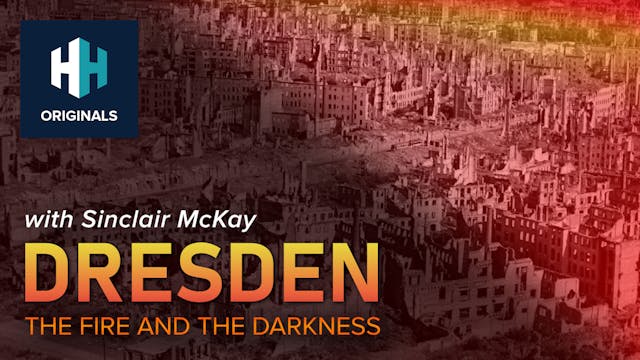Fighting Proud: A Gay History of the World Wars
20th Century
•
27m
At the end of World War Two the British public wanted to get back to ‘normal’. The gay men who had served their King and country found themselves subjected to a vigorous enforcement of the draconian law that would put them into prison if they were found guilty of indecency. But servicemen living in close proximity were made aware that men who chose to have sexual relationships with other men were not suffering from sexual perversion or a deadly disease, nor were they cowards or the stereotypical limp-wristed effeminates. ‘Fighting Proud’, a new book by Stephen Bourne, is about equality: being equally brave, scared, decisive, uniformed, wounded, and equally dead. War is the great leveler in which we are tested, tried and traumatised. No one ever emerges from war quite the same, whether it is battleground, air raid or that telegram with its irrevocable news. Fighting proud is heart-thumping and rousing; loving proud should be the same. In this episode, Stephen Bourne discusses the role of gay servicemen in the world wars, as well as the challenges of publishing gay history.
Up Next in 20th Century
-
F-35 Simulator
The F-35 is the latest plane to join the ranks of the RAF. What is so special about it is that it is a single-seat, single-engine fighter aircraft designed for many missions with advanced, integrated sensors built into every aircraft. Missions that were traditionally performed by small numbers of...
-
Dresden: The Fire and the Darkness
75 years ago this week Dresden, in Saxony, known as the ‘jewel box’ because of its stunning architecture was obliterated by British and American bombers. The flames reached almost a mile high. Around 25,000 people were thought to have been killed. The novelist Kurt Vonnegut was there. It was he w...
-
Doctor Under Fire: The Extraordinary ...
Over the course of his 106 years, Doctor William Frankland has experienced more than most. He served with the Royal Medical Corps during World War Two, spending more than three years as a prisoner of war of the Japanese following the fall of Singapore. After the war, his medical career focused on...



